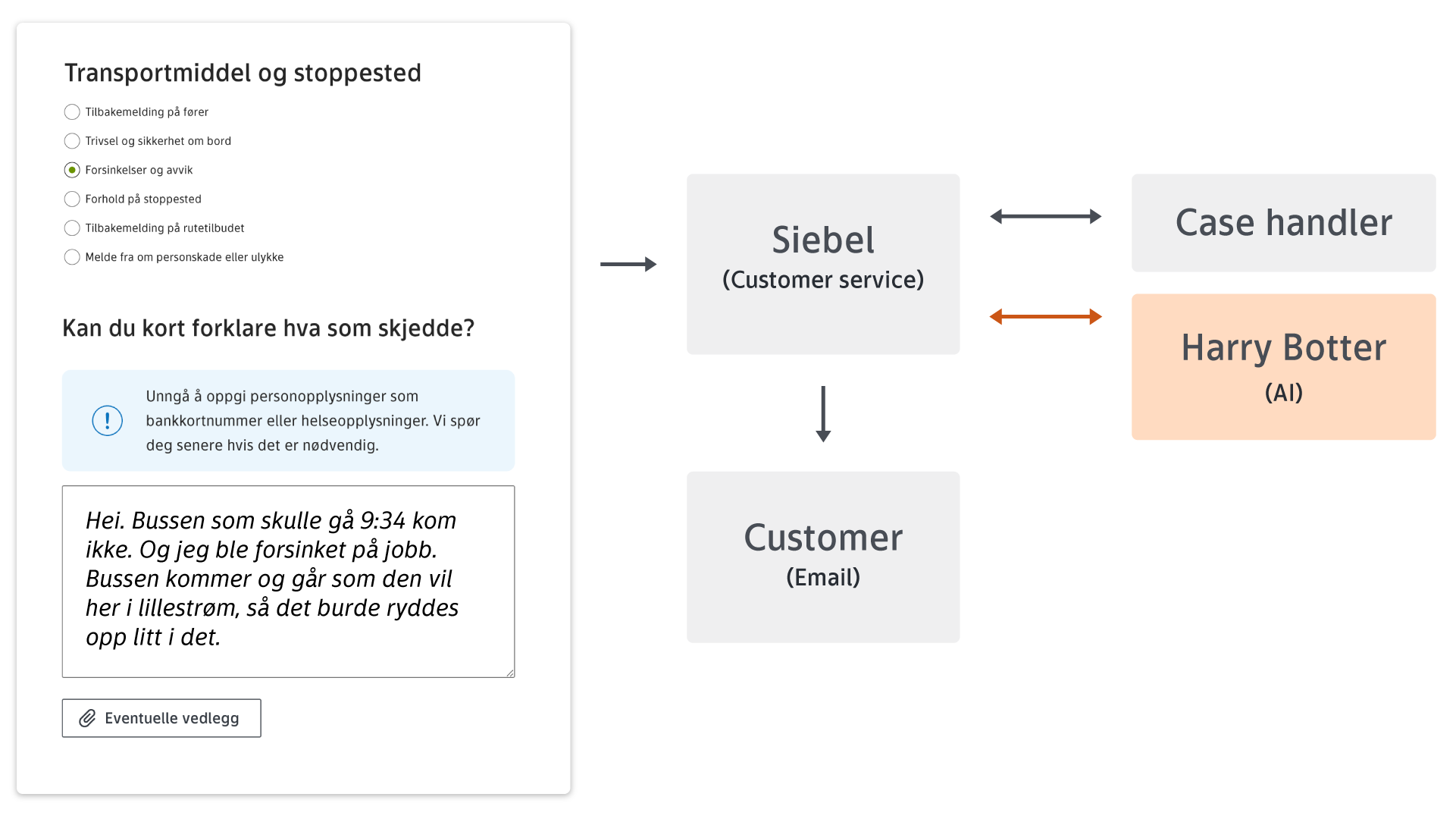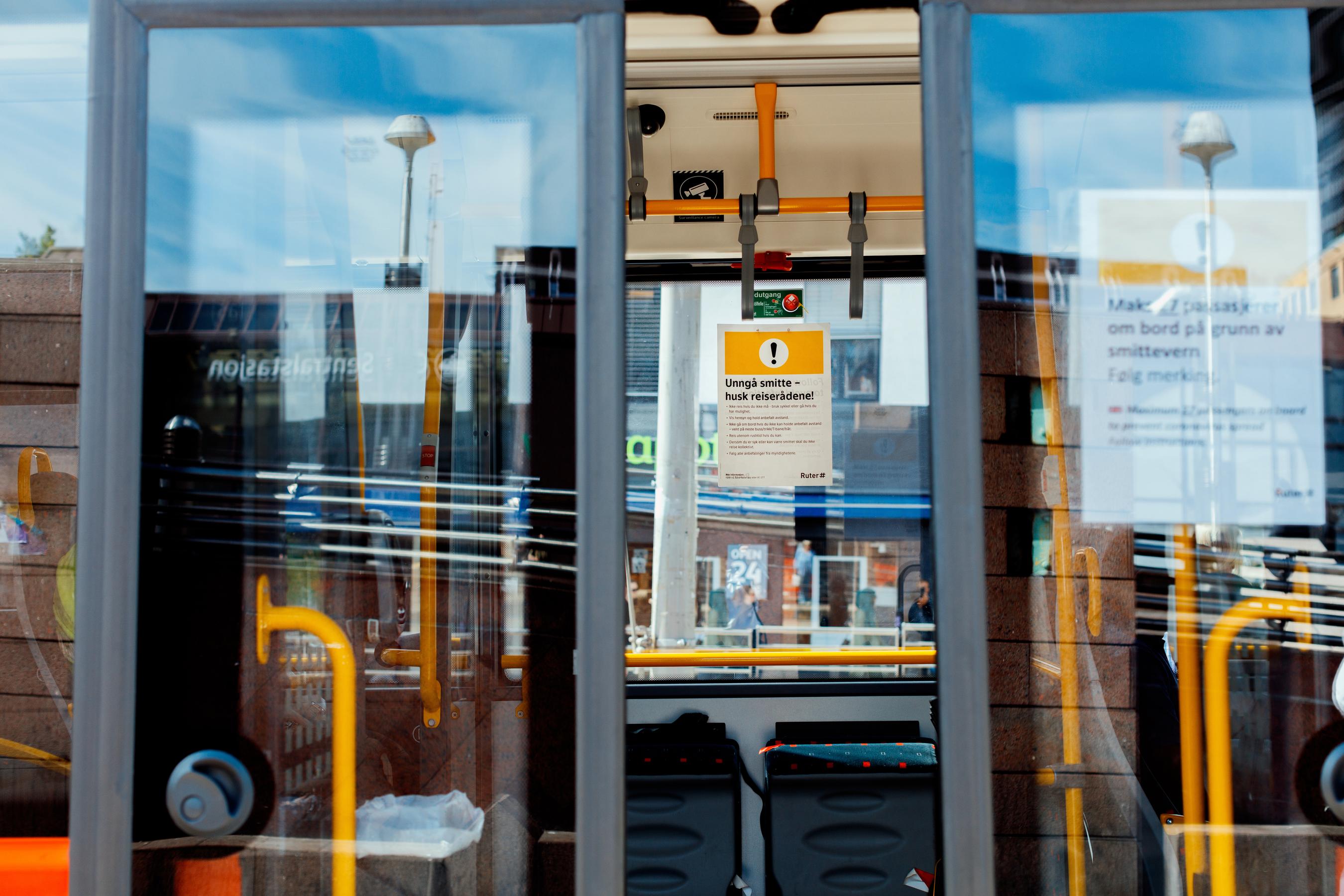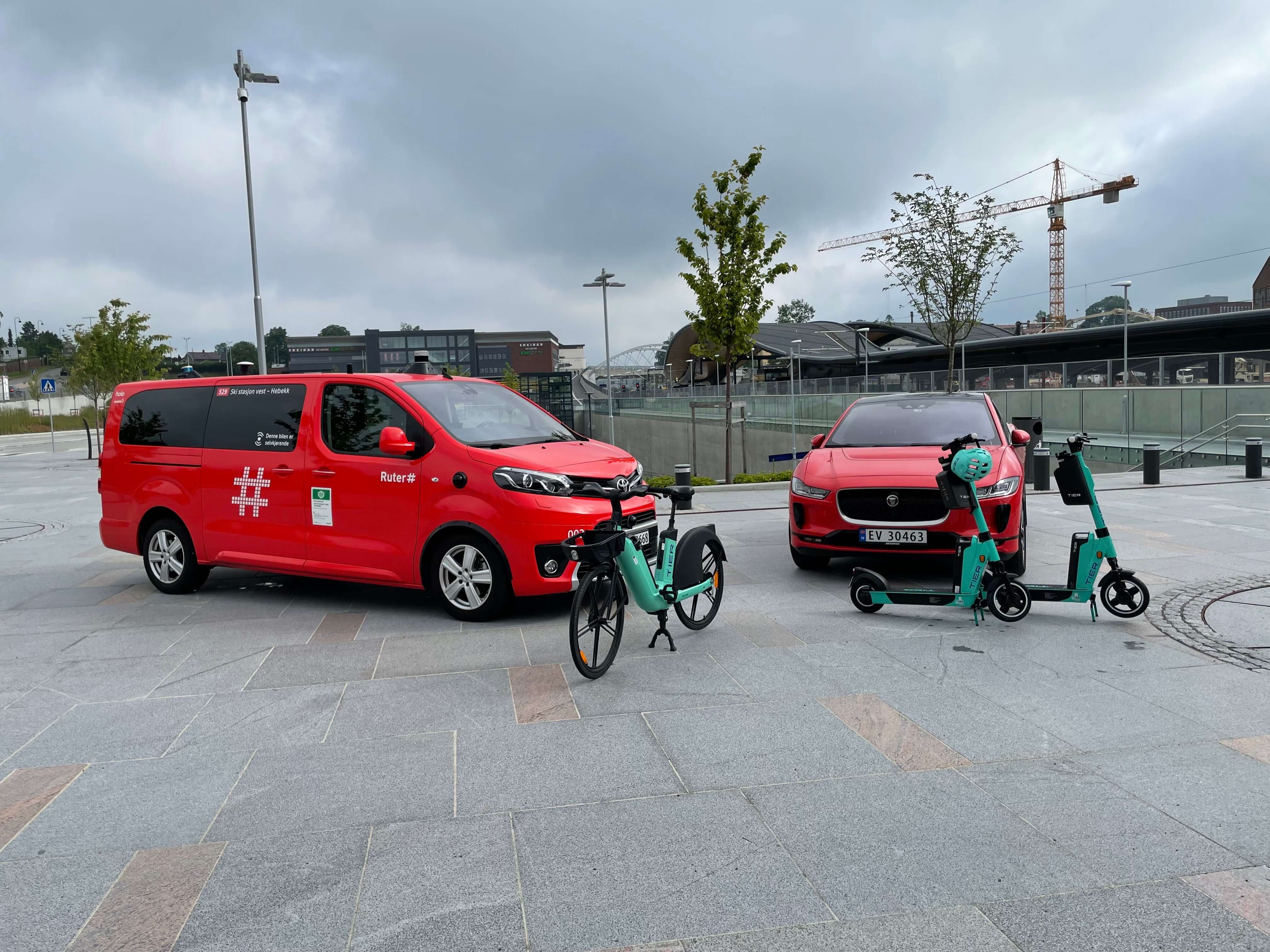
AI and digital services
Ruter’s customer service centre handles a large volume of customer enquiries every single day. With an increasing number of enquiries in 2021, we saw a need to find even better ways of categorising and extracting useful insights from all this information. This would help us identify useful feedback that had not shown up as well previously.
Customer insight using AI
We invited students to help us work out a solution. Firstly, we developed a system to collect feedback from customers via social media (Twitter) and enquiries coming to Ruter by e-mail, telephone and the contact form on Ruter.no. We then used Natural Language Processing (NLP), which is a type of Artificial Intelligence (AI), to process and organise these data into insights that could help us.
Artificial Intelligence
Artificial Intelligence (AI) is a technology used to enable computers and software to provide the best possible intelligent response.
AI is a branch of Informatics which is defined as the study and development of intelligent systems that observe their own environment and take decisions to maximise their own success.
Andreas Kaplan and Michael Haenlein are experts in this field. They define AI as ‘the ability of a system to interpret external data correctly, learn from such data and apply this knowledge to achieve specific goals and tasks through flexible adaptation’.
Using AI, we anonymised all personal data contained in the enquiries. This made it possible to share information with everyone at Ruter. As a result, our insight became not just statistics and numbers, but offered significant information about a problem or feedback from a customer.
We also used AI to conduct sentiment analyses of the enquiry data. Our customer support team is now able, with just a few clicks, to identify geographical clusters of users who appear to be less satisfied with our services. This type of information helps us to improve our service offering in certain geographical areas or for specific vehicles.
In order to share the information with as many people as possible, we created interactive dashboards and gave everyone access to the insights gained. This has meant that a range of people outside customer support uses the information to make improvements to our public transport system. This dashboard is currently one of the most used in Ruter and shows information about both current status and historical data. The result is increased customer satisfaction.
Harry Botter, Ruter’s AI caseworker
Customer support at Ruter receives more than 100,000 written enquiries annually from customers using our online contact form. Many of these are short and simple enquiries that deal with operational deviations (around 7% of all enquiries) when buses/trams do not show up on schedule.
Due to the large number of enquiries we receive, it can take time to respond to customers – even in those cases that do not necessarily require much processing time. This is a process that lends itself to automation.
The description the customer currently provides in the online contact form is interpreted by customer service representatives and categorised – as ‘cancelled’, ‘arrived too late’ or ‘arrived too early’. These same text field can be analysed and categorised using the Natural Language Process (NLP) in AI. The process of responding to customers is thereby streamlined – and customers get an immediate response. For customers, receiving fast feedback can be of great value. For customer support, it helps to reduce processing times and free up staff for handling more urgent incidents.
Harry Botter processed his first real case in September 2020. From 29 September 2020 to 27 September 2021, a total of 4,766 cases related to operational deviations were processed. Of these, Harry Botter handled 1,336, i.e. just over 28% of all operational deviation cases. This corresponds to approximately 45 case processing hours. This does not include time between cases that we would have had to add if a real person had worked on the cases.





